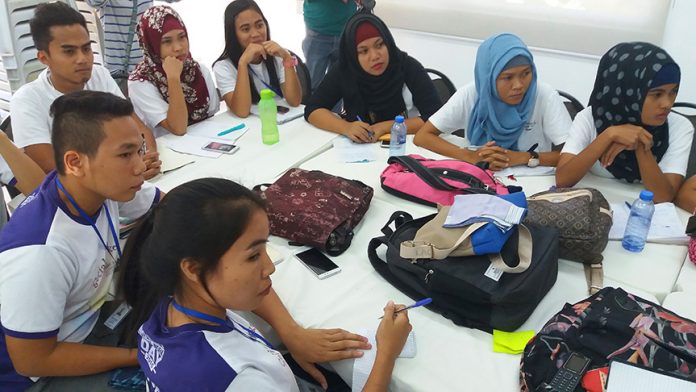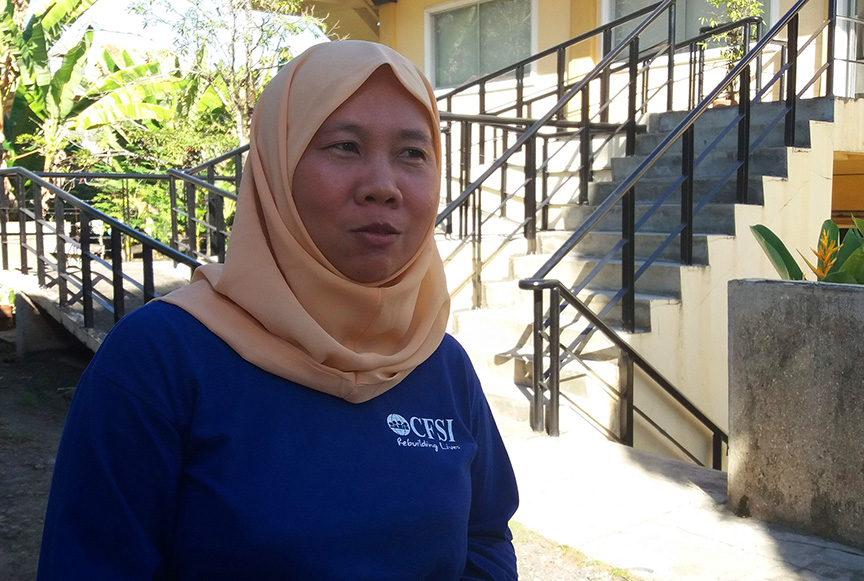
The Bangsamoro Development Authority (BDA) plays a major role in the preparations, identification and implementation of development programs and projects for the conflict-affected areas in the Bangsamoro, particularly in Mindanao.
BDA is also working closely with foreign governments and international donor agencies in the implementation of said development projects, including the peace process initiatives of the government of Japan through its Embassy; the Japan International Cooperation Agency (JICA); and the Japan-Bangsamoro Initiatives for Reconstruction and Development (J-BIRD), a project implemented through the Socio-Economic Assistance Component (SEAC) in the International Monitoring Team (IMT).
BDA was established in June 2001 pursuant to the humanitarian, rehabilitation and development aspects of the Government of the Philippines (GRP) – Moro Islamic Liberation Front (MILF) peace agreement.
The agency carries a vision of an enlightened, prosperous and self-sustaining Bangsamoro living in a just and secured life. As its mission as a development manager in the Bangsamoro, BDA is committed to implement a model of development anchored on its core values, geared towards institutional competence and sustainability.

“JICA was among the first development partners that came to us … the first engagement was the conduct of economic assessment in the conflict-affected areas in the Bangsamoro,” said Mohammad S. Yacob, executive director of BDA in an interview.
He added that assessment resulted to the formulation of a comprehensive economic plan for the Bangsamoro areas.
“The collaboration with the government of Japan started with the completion of the comprehensive plan and the start of the implementation of programs and projects to the conflict-affected areas in the Bangsamoro,” he added.
Current partnership between BDA and the government of Japan includes the implementation of projects through the Community Development in Affected Areas in Mindanao (CD-CAAM) and the Quick Impact Projects (QIPs).
A total of 150 beneficiaries in six people’s organizations (POs) were already served agriculture, fishery and infrastructure programs and projects under the CD-CAAM in the towns of Sultan Mastura in Maguindanao and Matunggao in Lanao del Norte.
Another 130 beneficiaries in 11 POs are currently receiving support for extension phase in agriculture, livestock and fishery projects through CD-CAAM in the towns of Sultan Mastura in Maguindanao, Matunggao in Lanao del Norte and Panglima Sugala in Tawi-Tawi.
In QIPs, BDA and JICA also implemented a total of 20 projects that include the construction of warehouses, school buildings and multi-purpose halls to 20 sites in six regions in Mindanao, including the island provinces of Sulu and Tawi-Tawi.
Of the total 20 QIP projects, nine were already turned over to their beneficiaries, five were recently completed and six are still under construction.
Support to human development

Among the beneficiaries of the J-BIRD projects through the grant assistance for grassroots human security is the Community and Family Services International (CFSI), a non-government organization (NGO) based in Cotabato City.
CFSI is a humanitarian organization committed to peace and social development that was established in 1981.
Noraida Abdullah Karim, CFSI’s director for Mindanao program expressed gratitude to the government of Japan for the support they received through J-BIRD in the construction of the Center for Excellence and Humanitarian Service (CEHS) building.
The CEHS building worth P3 million is situated within the compound of CFSI and now serves as a venue of activities of the Bangsamoro people in the pursuit of peace and capacity building through seminars, trainings and workshops.
“The aim of the support to CFSI is on capacity development,” said Tamabayashi Yosuke, the first secretary of the Embassy of Japan and an advisor to SEAC-IMT.
He added that CFSI proposed for the construction of the center and that Japanese government responded seeing the importance of the project for the Bangsamoro people.

CFSI also worked in partnership with the Mindanao State University (MSU) and the Catholic University of America in offering masteral course on social work and education program.
Emma D. Naga, administrative assistant of CFSI, said 100 slots for the masteral course was initially offered and all those who enrolled completed their studies in 2012.
“This center for excellence was the venue of the masteral studies,” Naga pointed out, adding that the 100 graduates are already working in development and humanitarian agencies, both in government and NGOs in Mindanao.
“Building bridges” over troubled past
Yacob likened the collaborations between BDA and the Japanese government as “building bridges” to allow Bangsamoro people, especially those living in conflict-affected areas, cross from the troubled past towards well-developed and sustainable communities.
“You will find the government of Japan in all fronts of the peace process – in the contact group, in the IMT and in the development programs,” the BDA executive director pointed out.
Under the J-BIRD initiative, the government of Japan already extended assistance worth over $240 million for programs and projects in the Bangsamoro as of October this year.
Continuing projects being undertaken include the Comprehensive Capacity Development Project (CCDP) that is being implemented within the Bangsamoro core territory in Mindanao.
The project, started in July 2013 and extended until 2019, carries the components of institutional and organizational building; human resources development; improvement of public service delivery; and the formulation of development plan for the Bangsamoro.
JICA is also working on upland rice cultivation project within Camp Abubakar of the MILF covering the six municipalities in provinces of Maguindanao and Lanao del Sur.
The cultivation project aims to improve productivity and income of 12 model farms within the camp and to develop the knowledge and skills of the former combatants of the MILF in rice farming.
The agency is also providing support to the on-going construction of agricultural roads in the conflict-affected areas of Alamada town in the province of North Cotabato and in the municipalities of Bumbaran and Datu Paglas in Maguindanao.
Construction of said agricultural roads started in February of this year and expected to be completed in November 2019.
SEAC in the IMT is also conducting socio-economic survey in the field of agriculture, community development and environmental issues.
It is currently implementing the basic survey of seawage, solid management and water supply in Cotabato City and its surrounding areas.
As the peace process moves forward, the Japan government sees the importance of capacity building and, when the normalization phase in the peace process comes – the transformation of the MILF’s military camps into peaceful and productive communities through the provision of socio-economic assistance to former combatants.
(Next: Sowing the seeds of peace in Bangsamoro homeland: Helping secure a brighter future for children.)






